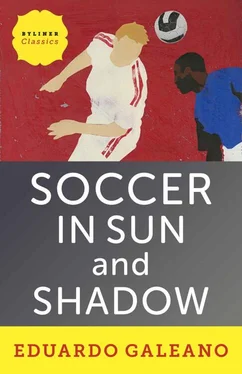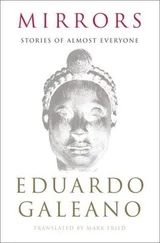He was born to shine shoes, sell peanuts, or pick pockets. As a child they called him “Ninguém”: no one, nobody. Son of a widowed mother, he played soccer from dawn to dusk with his many brothers in the empty lots of the shantytowns.
He set foot on the field running as only someone fleeing the police or poverty nipping at his heels can run. That’s how he became champion of Europe at the age of twenty, sprinting in zigzags. They called him “The Panther.”
At the World Cup in 1966 his long strides left adversaries scattered on the ground, and his goals, from impossible angles, set off cheers that never ended.
Portugal’s best player ever was an African from Mozambique. Eusebio: long legs, dangling arms, sad eyes.
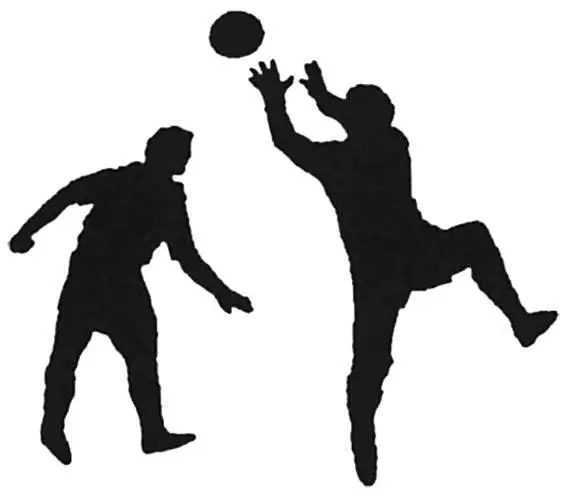
The keeper had a face chiseled with an ax and pitted by smallpox. His huge gnarled hands bolted and padlocked the net, and his feet shot off cannonballs. Of all the Brazilian goalkeepers I’ve ever seen, Manga is the one I remember most. Once, in Montevideo, I saw him score a goal from net to net: Manga kicked from his goal and the ball went into the opponents’ goal without any other player touching it. He was playing for the Uruguayan club Nacional as a penance after having been driven out of Brazil. The Brazilian team went home shamefaced from the ’66 World Cup, where they suffered an ignominious defeat, and Manga was the scapegoat of that national disgrace. He had played in only one match. He made a mistake, got drawn out and, as bad luck would have it, Portugal scored on the empty net. That unfortunate error became such a scandal that for a long time thereafter mistakes by goalkeepers came to be known as “ mangueiradas .”
Something like that happened at the ’58 World Cup, when the keeper Amadeo Carrizo paid the price for Argentina’s defeat. And before that, in 1950, when Moacyr Barbosa was the whipping boy for Brazil’s loss in the final at Maracanã.
At the 1990 World Cup Cameroon unseated Colombia, which had just won a brilliant match against Germany. The African team’s winning goal came on a foolish mistake by the goalkeeper René Higuita, who took the ball up to midfield and lost it there. The same people who like to cheer such audacity when it turns out well wanted to eat Higuita alive when he got back home.
In 1993 the Colombian team, without Higuita, crushed Argentina 5–0 in Buenos Aires. Such a humiliation cried out for someone to blame, and the guilty party had to be — who else? — the goalkeeper. Sergio Goycoechea paid for all the broken dishes. The Argentine team had been undefeated in more than thirty matches, and in each one Goycoechea was the key to its success. But after Colombia’s goalfest the miracle penalty-blocker not only lost his nickname, Saint Goyco, he also lost his spot on the team. More than one fan recommended suicide.
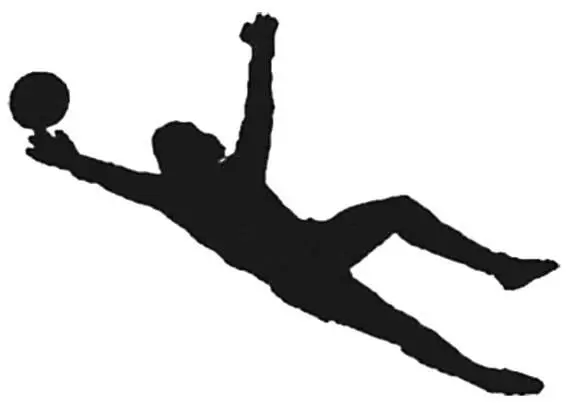
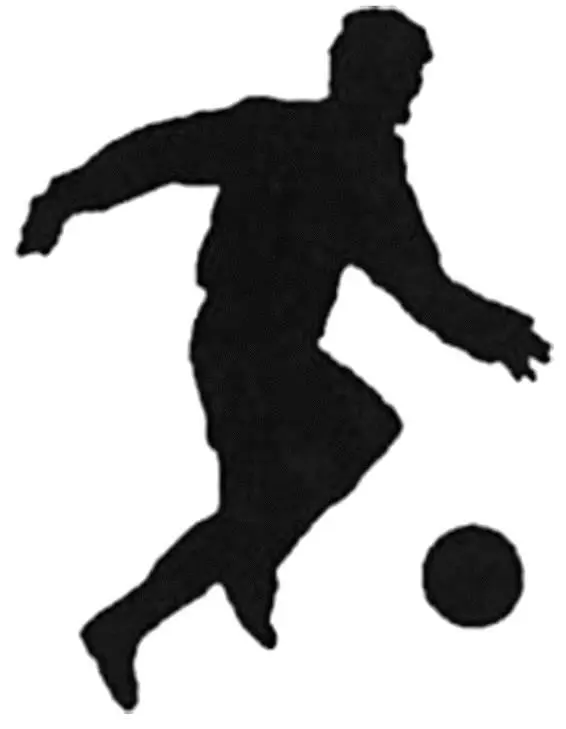
In 1966 the champions of the Americas and Europe, Peñarol and Real Madrid, faced each other twice. With fancy dribbling, beautiful plays, and barely any sweat on their shirts, Peñarol won both matches 2–0.
In the 1960s, Peñarol inherited the scepter from Real Madrid, the greatest team of the previous decade. Peñarol won the Inter-Continental Cup twice in those years and was champion of the Americas three times.
When the best squad in the world took the field, they warned the opposing players: “Did you bring another ball? This one belongs to us.”
The ball was forbidden entry to Mazurkiewicz’s net, in the midfield she obeyed the orders of “Tito” Gonçalves, and up front she buzzed on the feet of Spencer and Joya. At “Pepe” Sasía’s command, she would pierce the goal. But she had fun too, especially when Pedro Rocha would swing her back and forth.
It was 1969. Peñarol was playing Estudiantes from La Plata.
Rocha was at the center of the field, marked by two players, with his back to the enemy area, when he got the ball from Matosas. He put it to sleep on his right foot, spun around with the ball still there, slipped it behind his other foot, and escaped his markers Echecopar and Taverna. He made three quick dashes, left the ball to Spencer, and continued running. The return pass came in high in the semicircle. He trapped it with his chest, broke free of Madero and Spadaro, and volleyed a shot before it hit the ground. The goalkeeper, Flores, did not even see it.
Pedro Rocha slithered along like a snake in the grass. He played joyfully and his joy was infectious: the joy of the play, the joy of the goal. He did whatever he wanted with the ball, and she believed every bit of it.

At the end of the 1960s, the poet Jorge Enrique Adoum returned to Ecuador after a long absence. As soon as he arrived, he performed an obligatory ritual in the city of Quito: he went to the stadium to see the Aucas play. It was an important match and the stands were packed.
Before the kickoff there was a minute of silence for the referee’s mother, who had died that morning. Everyone stood, everyone was silent. Then someone made a speech praising the dedication of this exemplary sportsman who was going to officiate, performing his duty even in the most difficult of circumstances. At the center of the field, his head bowed, the man in black acknowledged the sustained applause of the crowd. Adoum blinked, he pinched himself: he couldn’t believe it. What country was he in? So much had changed. Before, people’s only concern for the referee was to call him a son of a bitch.
And the match began. At fifteen minutes Aucas scored and the stadium exploded. But the referee disallowed the goal due to an offside, and the thoughts of the crowd turned immediately to his deceased mater: “Orphan of a bitch!” roared the stands.
Tears Do Not Flow from a Handkerchief
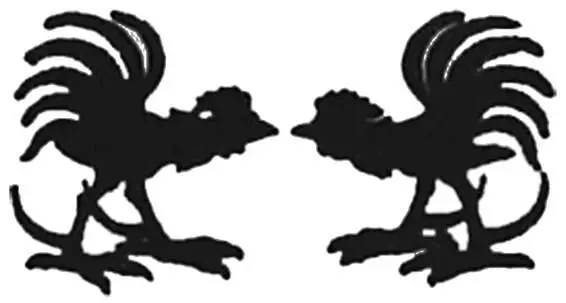
Soccer, metaphor for war, at times turns into real war. Then “sudden death” is no longer just a name for a dramatic way of deciding a tied match. These days, soccer fanaticism has come to occupy the place formerly reserved for religious fervor, patriotic ardor, and political passion. As often occurs with religion, patriotism, and politics, soccer can bring tensions to a boil, and many horrors are committed in its name.
Some believe men possessed by the demon of the ball foam at the mouth, and frankly that image presents a fairly accurate picture of the frenzied fan. But even the most indignant of critics would concede that in most cases violence does not originate in soccer, any more than tears flow from a handkerchief.
In 1969 war broke out between Honduras and El Salvador, two small and very poor Central American countries that for more than a century had been accumulating reasons to distrust one another. Each has always served as the magical explanation for the other’s problems. Hondurans have no work? Because Salvadorans come and take their jobs. Salvadorans are hungry? Because Hondurans mistreat them. Both countries believed their neighbor was the enemy, and the relentless military dictatorships of each did all they could to perpetuate the error.
Читать дальше
